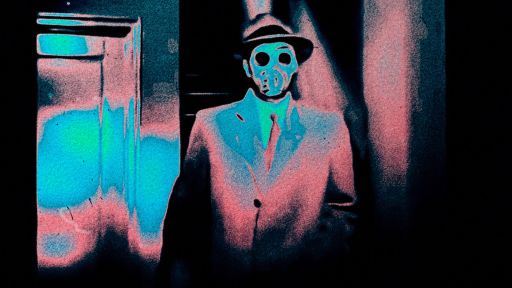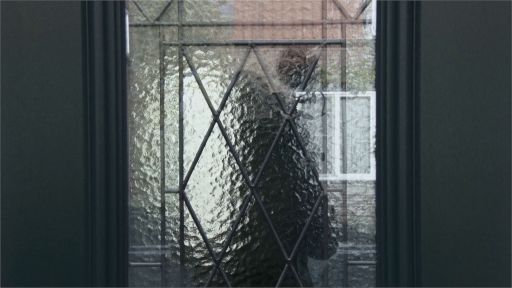Eén belangrijke vraag kon nog niet beantwoord worden tijdens de op 18 mei gehouden online-persconferentie van het International Film Festival Rotterdam. Festivaldirecteur Vanja Kaludjercic presenteerde daar het programma waarmee het IFFR begin juni de jubileumeditie afrondt. Een speciale verlengde editie waarmee het festival zowel het 50-jarig bestaan als de cinema zelf viert.
Maar ook corona speelt mee. Het eerste gedeelte in februari, met de Tiger- en andere competities, was noodgedwongen online. De slotweek zal in ieder geval ook online zijn. Maar wordt het meer dan dat? De verwachting in februari was dat het publiek in juni vast en zeker weer welkom zal zijn in de filmzalen, voor de echte festivalervaring. Kaludjercic noemt het nu de ‘million dollar question’. Zullen de bioscopen op 2 juni open kunnen? Een kleine kans, schat ze. Er wordt gewerkt aan plannen om eventueel met sneltesten te gaan werken, maar ook over die mogelijkheid valt nog niets concreets te zeggen.
Aanvulling: Inmiddels is bekend gemaakt dat het festival de status van testevenement heeft gekregen. Dat betekent dat je met een digitaal testbewijs (met negatieve uitslag) van testenvoortoegang.nl het festival ook fysiek kan bezoeken.
The World to Come
Over naar de film waarmee dit slothoofdstuk van het festival opent – in ieder geval online dus. Die eer valt te beurt aan The World to Come van de Noorse regisseur Mona Fastvold. De titel van deze Amerikaanse productie doet denken aan sciencefiction, maar het is het verhaal van een verboden liefde tussen twee vrouwen in een Amerikaanse nederzetting halverwege de negentiende eeuw. Kaludjercic vertelt dat ze bij de première vorig jaar in Venetië, waar de film goed werd ontvangen, onder de indruk was van de twee actrices. Afgaand op de tijdens de persconferentie vertoonde clip is het een betrekkelijk klassieke productie, een opening die een breed publiek kan aanspreken. En een onderwerp dat nog steeds van belang is, volgens de regisseur via zoom.
Een haven voor de cinema
Een primeur is het nieuwe en ook grootste programma-onderdeel Harbour, dat in juni gelanceerd wordt. Met een naam die verwijst naar de dynamiek van Rotterdam als havenstad, moet Harbour een thuishaven zijn voor de grote verscheidenheid aan hedendaagse films. Kaludjercic vindt het belangrijk dat Harbour naast de competities als ruggengraat van het festival fungeert. Een programma vol verrassingen en ontdekkingen.

Hoe groot die verscheidenheid in Harbour is blijkt al uit twee titels die ze als voorbeeld noemt. Accidental Luxuriance of the Translucent Watery Rebus is een uiterst curieuze Kroatische animatiefilm propvol vondsten, verwijzingen en raadsels. Net zo uitdagend als de titel zelf. Zijn we soms beland in het koortsige brein van een fanatieke film noir-liefhebber? Toen ik deze vrije explosie der verbeelding op het animatiefestival van Annecy zag schreef ik in mijn notitieboekje: zet realiteit en logica maar even in pauzestand.
Maar je kan in Harbour ook Lutar, lutar, lutar tegenkomen. Een (volgens de IFFR-catalogus) gepassioneerde en meeslepende documentaire over twee Braziliaanse voetbalfanaten. Die ook licht schijnt op onrecht, tegenwerking, racisme en machinaties van machthebbers.
A Man and a Camera

Zelf wil ik graag de Nederlandse Harbour-titel tippen. A Man and a Camera van Guido Hendrikx, die hiermee al veel aandacht trok op het Deense documentairefestival CPF:DOX. Net als in zijn eerdere Stranger in Paradise weer gebaseerd op een heel eigen idee. Hendrikx belt bij mensen aan, laat de camera draaien maar zwijgt verder als het graf. Als een buitenaardse bezoeker, denk je soms. Het resultaat is een intrigerende, onvoorspelbare en soms zelfs ontroerende film zoals je vermoedelijk niet eerder zag.
Dat Harbour inderdaad als stevige festivalbasis kan fungeren blijkt als we het IFFR-programma van dit jaar vergelijken met voorgaande edities. Met de komst van Harbour is er ook het nodige snoeiwerk verricht in de wildgroei aan (sub)secties die in de de loop der tijd was ontstaan. Het komt de overzichtelijkheid zeker ten goede.
Bright Future
Het vertrouwde onderdeel Bright Future vult daarnaast Harbour mooi aan. Werk van beginnend talent, dat dit jaar op een iets andere manier is geselecteerd. Ieder van de veertien festivalprogrammeurs mocht een favoriet uitkiezen. Ook hier een opvallende Nederlandse productie: BERG van Joke Olthaar. Op het eerste gezicht een film over drie bergwandelaars, maar die krijg je nauwelijks te zien. De bergen zijn de echte hoofdpersonen. Adembenemende zwartwitbeelden in wat je een filmische meditatie zou kunnen noemen.
Verder staan er IFFR Talks op het programma, zijn er vier IFFR Classics, kan in Cinema Regained genoten worden van historisch curiositeiten en is er een sectie met korte en middellange films. Met enige trots wijst Kaludjercic op het onderdeel Art Directions. Hier worden dwarsverbanden gelegd tussen kunst en cinema. Met installaties, virtual reality en meer. Spannend lijkt me het bezoek van de Werner Guerilla Cinema. Een uitermate stoer ogend voertuig dat als rijdende bioscoop Rotterdam zal aandoen. De naam is een hommage aan de onvolprezen Werner Herzog.
De slotfilm is de Japanse animatie Poupelle of Chimney Town. Net als de opening zal deze expressieve verfilming van een succesvol kinderboek een breed publiek kunnen aanspreken. Thema klimaatverandering in een filosofisch verhaal waarin een vuilnismonster een jongetje helpt zijn blik omhoog te richten. Voor filmliefhebbers van alle leeftijden, belooft het festival.
Het slotdeel van het festival vindt plaats van 2 t/m 6 juni. Online blijven films beschikbaar tot 9 juni. Voor het volledige programma, en de instructies voor ’testen voor toegang’: iffr.com. De openingsfilm The World to Come komt naar verwachting in juli in de bioscoop.
